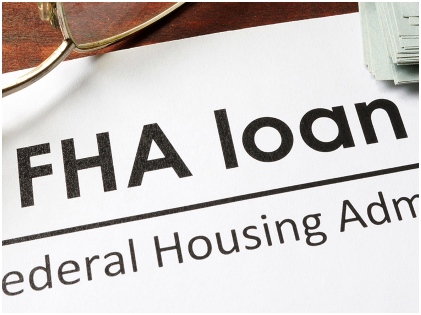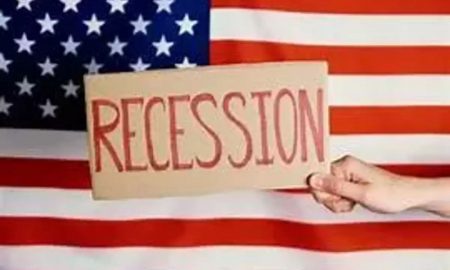
Should You Opt For FHA-Insured Loans?

If you have recently graduated from college, tied the knot, or found yourself in a bit of a pickle regarding your finances that’s preventing you from making a down payment of 20% on your very first home loan, you might have been advised to opt for an FHA loan. If you have no idea how the real estate sector works, you might be scratching your head on what exactly an FHA loan is, how it works, and whether it is a perfect option for you if are buying a home for the first time. Well, know the basics and determine if you should choose to go for an FHA loan at all.
What is an FHA-Insured Loan?
 FHA is an abbreviated form of Federal Housing Administration. It’s precisely a government agency that has been in existence since 1934. Though you might have heard people used the term “FHA loans” pretty commonly, you must know that the FHA doesn’t lend you money. In fact, in reality, the Federal Housing Administration is the largest mortgage insurer present in the world in today’s times. When you take a home loan that comes with a high risk, the FHA helps you to ensure that. Now, how would you decide whether an FHA loan would be favorable for you or not? Have a look at its pros and cons.
FHA is an abbreviated form of Federal Housing Administration. It’s precisely a government agency that has been in existence since 1934. Though you might have heard people used the term “FHA loans” pretty commonly, you must know that the FHA doesn’t lend you money. In fact, in reality, the Federal Housing Administration is the largest mortgage insurer present in the world in today’s times. When you take a home loan that comes with a high risk, the FHA helps you to ensure that. Now, how would you decide whether an FHA loan would be favorable for you or not? Have a look at its pros and cons.
FHA Loans and Its Appeal
 An FHA-insured loan works the best for you if you don’t have a high or moderate-income or possess a poor credit score. The requirements of an FHA loan is much easier to meet, and the eligibility criteria are more flexible. In comparison to having nothing at all, availing an FHA-insured loan to initiate building equity is a better option or so do experts feel. However, the main attraction of an FHA-insured loan for individuals who are buying homes for the first time is that the requirements of a down payment are much lower than other cases. Usually, FHA loans require you to shell out 3.5% as a down payment. People with a poor credit score are entertained, and that’s definitely a plus point. Your credit score must touch 500 in order to qualify and 580 in order to be eligible for a 3.5 % down payment, as stated earlier. In case of a disaster, you get a hardship relief.
An FHA-insured loan works the best for you if you don’t have a high or moderate-income or possess a poor credit score. The requirements of an FHA loan is much easier to meet, and the eligibility criteria are more flexible. In comparison to having nothing at all, availing an FHA-insured loan to initiate building equity is a better option or so do experts feel. However, the main attraction of an FHA-insured loan for individuals who are buying homes for the first time is that the requirements of a down payment are much lower than other cases. Usually, FHA loans require you to shell out 3.5% as a down payment. People with a poor credit score are entertained, and that’s definitely a plus point. Your credit score must touch 500 in order to qualify and 580 in order to be eligible for a 3.5 % down payment, as stated earlier. In case of a disaster, you get a hardship relief.
What Would Make You Not Opt For an FHA Loan?
 Before you go into the depths about the features of such a loan, you need to do some basic mathematics. If your down payment is not that large, you will have to shell out more interest as long as the loan lasts. With a 3.5% down payment, the interest will be significantly higher than that of a 20% down payment. Next, private mortgage insurance or PMI is attached to loans which are insured by the FHA. Compared to conventional loans which require you to pay around 20% down, the PMI of an FHA loan is costlier. You would have to finance almost 1.75% of the entire loan amount first and then pay a premium every year that would be distributed into your mortgage payment every month. The yearly rate of insurance depends on a number of factors but is mostly above 1%. Moreover, lenders are pretty much choosy about which properties they would like to finance. As a consequence, you would be left with a limited choice.
Before you go into the depths about the features of such a loan, you need to do some basic mathematics. If your down payment is not that large, you will have to shell out more interest as long as the loan lasts. With a 3.5% down payment, the interest will be significantly higher than that of a 20% down payment. Next, private mortgage insurance or PMI is attached to loans which are insured by the FHA. Compared to conventional loans which require you to pay around 20% down, the PMI of an FHA loan is costlier. You would have to finance almost 1.75% of the entire loan amount first and then pay a premium every year that would be distributed into your mortgage payment every month. The yearly rate of insurance depends on a number of factors but is mostly above 1%. Moreover, lenders are pretty much choosy about which properties they would like to finance. As a consequence, you would be left with a limited choice.
Should You Opt For FHA-Insured Home Loan?
 Unless you have a sufficient sum required to make a down payment, have a strikingly poor credit score, or have no better options in hand, you can opt for an FHA-insured loan. With that being said, if you have the qualifications to avail a traditional loan and have the confidence that you can save the money required for a 20% down payment, then never look towards an FHA-insured loan. Paying a lesser amount at the beginning doesn’t mean you will be paying less over the lifetime of the loan.
Unless you have a sufficient sum required to make a down payment, have a strikingly poor credit score, or have no better options in hand, you can opt for an FHA-insured loan. With that being said, if you have the qualifications to avail a traditional loan and have the confidence that you can save the money required for a 20% down payment, then never look towards an FHA-insured loan. Paying a lesser amount at the beginning doesn’t mean you will be paying less over the lifetime of the loan.
You can obviously take the help of a professional financial advisor and have a detailed discussion about your financial status and what benefits you would get as far as an FHA-insured loan is concerned. Don’t do anything in haste. When it comes to something as big as your finances, you should always be careful. Assess your situation and then decide.
More in Loans & Mortgages
-
`
Curious About Travis Kelce’s Net Worth? Here’s the Scoop!
Travis Kelce’s name echoes through NFL stadiums, synonymous with athletic prowess and electrifying plays. But beyond his touchdown celebrations and record-breaking...
June 10, 2024 -
`
Everything You Need to Know About an Assumable Mortgage
What is an Assumable Mortgage? Whether you are a buyer or a seller, understanding the concept of assumable mortgages can open...
June 6, 2024 -
`
Layoff vs. Fired – Understanding the Crucial Differences
When it comes to job loss, understanding the distinction between being layoff vs. fired is crucial. While both situations result in...
May 30, 2024 -
`
When Are Business Taxes Due 2024? Essential Dates and Deadlines
Tax deadlines can be daunting, but fear not! Let’s break down everything you need to know to stay on top of...
May 22, 2024 -
`
How Much Does Jeff Bezos Make Per Hour? It’s More Than You Think!
Jeff Bezos, a name synonymous with innovation and wealth, stands as one of the world’s richest individuals. While Bernard Arnault and...
May 16, 2024 -
`
What is Portfolio Investment Entity (PIE) and How Can it Benefit You?
In the intricate world of finance, individuals seek avenues to optimize their investments while minimizing risks. One such avenue gaining traction...
May 9, 2024 -
`
What is a Bank Statement? Understanding its Definitions, Benefits, and Prerequisites
Ever wondered where your money goes? A bank statement is like a financial report card, giving you a clear picture of...
April 30, 2024 -
`
Branded Content: A Genuine Way to Connect With Your Audience
Have you ever binge-watched a series on Netflix, only to later realize that the beverage everyone’s sipping on is that brand...
April 23, 2024 -
`
What Car Does Jeff Bezos Drive? Find Out Inside His Exclusive $20 Million Collection
Have you ever wondered what car does Jeff Bezos drive? This man’s tastes in vehicles are as expansive as his business...
April 17, 2024















You must be logged in to post a comment Login